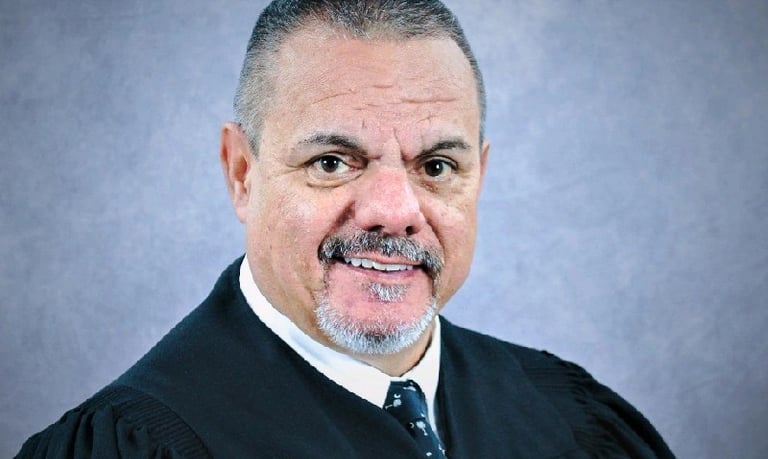Tyrant and Corrupt Judge Danny Singleton Exposes the Estate of Doyle Pierce to County Sale
OCONEE PROBATE COURT


Judge Danny Singleton’s handling of the Doyle Pierce estate has been marred by bias, legal misunderstanding, and judicial overreach. His actions have placed the estate at significant risk, jeopardizing its financial stability and undermining the confidence of the community in the probate court’s ability to administer justice fairly. .
In an alarming turn of events, Judge Danny Singleton’s actions have placed the Doyle Pierce estate at significant risk of being sold by Oconee County due to tax delinquency and accumulating penalties. Known for his lack of formal legal education and apparent pettiness, Singleton’s decisions have jeopardized the financial stability and future of the estate, raising serious concerns among the involved parties and the broader community.
Judge Singleton’s background, which includes only a two-year police science degree from Oconee Tri-County Technical College and no formal law degree, has long been a point of contention. His lack of legal knowledge has become increasingly evident in his handling of the Doyle Pierce estate, leading to a series of questionable decisions and procedural errors.
Key Issues Placing the Estate at Risk
1. Delinquent Estate Taxes
The estate of Doyle Pierce faces delinquent taxes amounting to approximately $3,500, which must be paid by January 15, 2024. Despite proactive efforts by Dorothy Pierce, the widow and Personal Representative (PR) of the estate, to address this issue, Judge Singleton has obstructed these efforts, exacerbating the financial risk to the estate.
2. Judicial Obstruction
On January 15, 2024, Ms. Pierce notified all parties and the court of her intent to manage the tax obligations of the estate. Instead of facilitating this process, Judge Singleton issued a stern instruction to refrain from executing any fiduciary duties, in direct violation of SCRCP Rule 241. This obstruction prevents the PR from fulfilling her legal responsibilities.
3. Revocation of Authorization
On February 14, 2024, Ms. Pierce attempted to set up an estate account to manage tax payments. However, Singleton intervened, instructing the bank to revoke her authorization. This led to threats of contempt and a law enforcement visit to Ms. Pierce's residence, further complicating the estate’s administration.
4. Engagement with Heirs
Efforts by Ms. Pierce to engage the estate heirs in resolving the tax issues have been met with indifference or outright dismissal, leaving the estate’s financial obligations unmet.
5. Jurisdictional Overreach
Despite the estate matters being under appeal in the Court of Appeals, Judge Singleton has continued to assert jurisdiction improperly. The probate court does not have authority over the PR or Special Administrator while the appeals are pending.
6. Pending Orders
A pending order in the Court of Appeals aims to distribute all assets to heirs without provisions for future estate expenses or taxes, complicating the estate’s financial management.
7. Asset Sale Restrictions
Singleton’s actions have prevented the sale of estate assets, which would affect ongoing appeal matters. This restriction further endangers the estate’s financial health.
Financial Hardship and Bias
The estate has been financially strained since Doyle Pierce’s passing. Dorothy Pierce has personally spent thousands of dollars managing the estate, including paying the property taxes for 2020 and 2021 out of her own funds, without reimbursement. Despite these significant contributions, Judge Singleton ordered Ms. Pierce to pay the 2023 taxes from her personal funds, even though she resides in only a small portion of the estate's property. The estate includes 62 acres of land, and Ms. Pierce lives on just 2 acres, with the house valued at $75,000. Despite her prior payments towards the estate's taxes, Judge Singleton ruled via email in favor of Richard Hunt McDuff's argument that Ms. Pierce must pay the full amount of the estate's taxes, further burdening her financially and disregarding the contributions she has already made.
Tax Payment Order and Bias
Upon receiving a notice of delinquency from the Oconee County Tax Office on April 18, 2024, Judge Singleton directed Ms. Pierce to pay the taxes out of her own money, but not in her capacity as PR. This directive was heavily influenced by Richard Hunt McDuff, the lawyer for Judge Singleton's alleged financier, Jerry Edwards. This biased decision unfairly shifts the financial burden onto Ms. Pierce, ignoring the collective responsibility of all heirs and the estate itself.
Analysis of Judicial Misconduct
The email exchanges between Judge Singleton, Ms. Pierce, and other parties reveal a clear bias against Ms. Pierce and a lack of understanding of legal procedures. Despite Ms. Pierce's efforts to highlight the automatic stay provision under SCRCP Rule 241, which maintains her position as PR pending the outcome of the appeal, Judge Singleton continued to assert that she had no authority to act as PR. His directives and threats of contempt illustrate a misuse of judicial power and a failure to uphold due process.
Misapplication of the Law
In his misapplication of the law, Judge Singleton stated that his order removing Ms. Pierce as PR stands, despite her appeal. This stance directly contradicts South Carolina Rule 241, which provides that the filing of a notice of appeal stays the enforcement of the appealed order. Judge Singleton's refusal to acknowledge this rule is a clear misstep and reveals a retaliatory motive against Ms. Pierce for appealing his one-man settlement order.
Conclusion
Judge Singleton’s handling of the Doyle Pierce estate has been marred by bias, legal misunderstanding, and judicial overreach. His actions have placed the estate at significant risk, jeopardizing its financial stability and undermining the confidence of the community in the probate court’s ability to administer justice fairly. This situation underscores the urgent need for judicial oversight and the necessity for probate judges to possess a clear understanding of legal protocols to manage complex estate matters effectively.
Immediate action is needed to address the tax issues and protect the estate from further mismanagement. The community and relevant authorities must demand accountability and ensure that probate judges are equipped with the necessary legal expertise to fulfill their roles competently and impartially.
